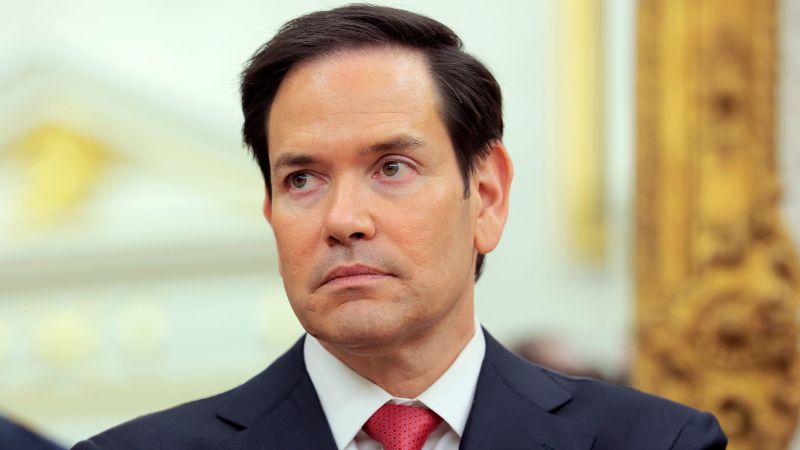The recent actions taken by the Trump administration signify a significant shift in the policy regarding international students, particularly targeting those from China. Secretary of State Marco Rubio made a bold announcement on Wednesday that the administration would “aggressively revoke visas for Chinese students.” This move has arisen as part of a broader examination and revisement of America’s higher education landscape which has been influenced by complex international relations, especially with China.
The decisions outlined will not only impact students but could also place considerable strain on U.S. higher education institutions that traditionally attract a sizable number of international scholars and students. Secretary Rubio indicated that the State Department would partner with the Department of Homeland Security to implement these visa revocations, specifically aimed at students with links to the Chinese Communist Party, as well as those studying in critical and sensitive fields. This raises serious concerns about the intentions behind such policies, which appear to target a specific demographic rather than focusing on potential security threats in a more balanced manner.
Moreover, Rubio declared intentions to enhance scrutiny on all future visa applications from the People’s Republic of China and Hong Kong. This claim reflects an escalating trend wherein national security considerations are increasingly influencing the immigration and visa policies of the United States. As a result, not only are the interests of students at stake, but also the reputation of U.S. institutions as global leaders in education and research may be jeopardized.
Rubio’s announcement comes amid reports of various aggressive steps taken by the administration that could discourage international students from pursuing education in the U.S. CNN detailed earlier actions, such as the instruction to embassies to pause new student visa appointments while expanding social media vetting measures. Additionally, in a controversial move last week, the Trump administration revoked Harvard University’s ability to enroll international students, although a federal judge later intervened to halt these measures. These actions were repeated by Homeland Security Secretary Kristi Noem, who confirmed that plans to target other universities were actively being considered.
The ramifications of these policy changes are set against a backdrop of growing friction between the U.S. and China, with longstanding educational ties being reshaped by this emerging geopolitical rivalry. China has historically been the largest source of international students to the U.S., maintaining this position for 15 consecutive years until it was recently surpassed by India. This shift signifies not only a change in student demographics but may also reflect increasing caution for potential students regarding their ability to study in the United States.
Educational connections between the U.S. and China have led to the cultivation of strong relationships between academics and institutions from both countries. U.S. universities and their industries have widely benefited from access to top-tier talent from China, which has supported innovation and research. However, as the U.S. increasingly perceives China as a significant technological rival, these ties are under increasing scrutiny. The original intent of fostering academic collaboration has mutated into a battleground for national security concerns, highlighting a complex interplay between education and geopolitical strategy.
As this situation unfolds, it underscores a pivotal moment in U.S.-China relations, with potential long-term implications for higher education in America and the international student community at large. The educational landscape, once characterized by collaboration and exchange, is now poised to confront the realities of geopolitical tensions which may fundamentally reshape its future. The developments in educational policies are reflective not only of domestic sentiment in the U.S. but also of a broader context of national security and global competitiveness.
This situation is continually evolving, and insights from reliable journalistic sources remain critical to understanding its full impact. The contributions of journalists such as Simone McCarthy and Piper Hudspeth Blackburn at CNN enrich the narrative surrounding these developments, providing updates that keep the public informed about the repercussions that international students may face.



